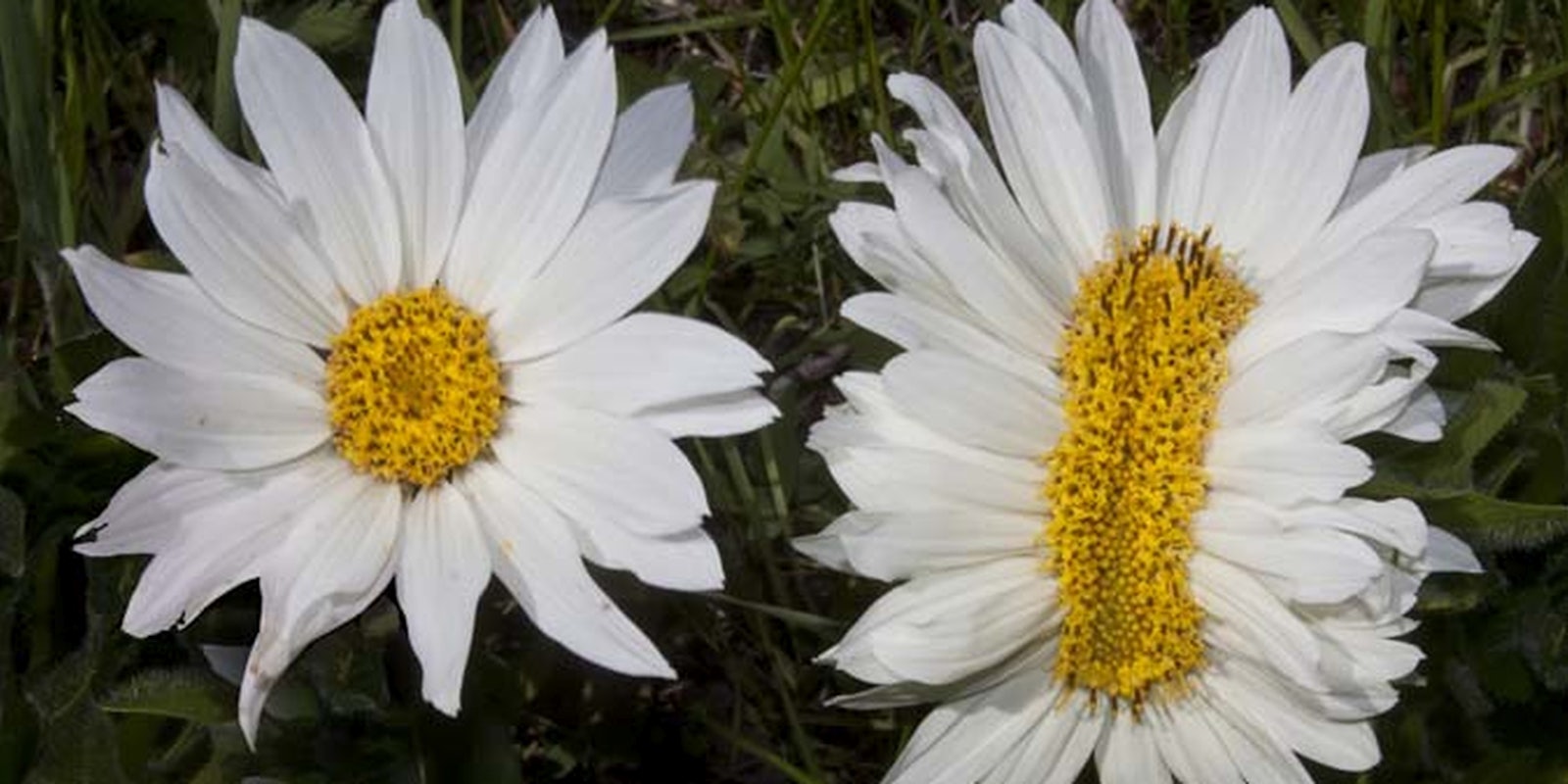Sometimes, a rose is just a rose, and a two-headed daisy just a two-headed daisy.
The Internet is aghast at a photo of some daisies reportedly found near Fukushima. The flowers appear to be the mutant hellspawn of the radioactive materials that flowed into the area after a magnitude 9 earthquake rocked Japan in 2011.
But chances are, they’re just your average, everyday, run-of-the-mill mutant flowers.
According to mythbusting website Snopes.com, the image originally appeared on a Japanese twitter account on May 27, 2015.
マーガレットの帯化(那須塩原市5/26)②
— 三悔堂 (@san_kaido) May 27, 2015
右は4つの花茎が帯状に繋がったまま成長し,途中で2つに別れて2つの花がつながって咲いた。左は4つの花茎がそのまま成長して繋がって花が咲き輪の様になった。空間線量0.5μSv地点(地上高1m) pic.twitter.com/MinxdFgXBC
Translation: “The right one grew up, split into two stems to have two flowers connected each other, having four stems of flower tied belt-like. The left one has four stems grew up to be tied to each other and it had the ring-shaped flower. The atmospheric dose is 0.5 μSv/h at 1m above the ground.”
According to Snopes, the photo was snapped at Nasushiobara City where the radiation level was deemed “safe for medium to long-term habitation,” (one small step above normal levels of radiation.)
It’s more likely that these daisies are simply displaying a rare plant mutation called fasciation, which affects many species of vascular plants.
“It’s not clear what the cause of the mutation is, but genetic, hormonal, bacterial, fungal, viral and environmental causes have all been put forward,” ScienceAlert reported.
However, a brief literature search of radiation and fasciation suggests that there may be a connection between the two. That is to say, that a few studies have irradiated plants and seen fasciation occur. For example, this 2009 study irradiated a model plant called Arabidopsis and saw that some plants show fasciation as a result. A 2012 study saw a similar effect in wooded plants.
But both of these studies used high doses of gamma-ray radiation to induce the effects. It seems unlikely that the relatively low levels of radiation in Nasushiobara City would cause the effects, but there’s no real way to know for sure. Fasciation is seen all over the world and likely to be caused by many more mundane mechanisms than radiation exposure, so that seems likely to be the case here as well.
Photo via Perduejn/Wikimedia (CC BY 3.0)


